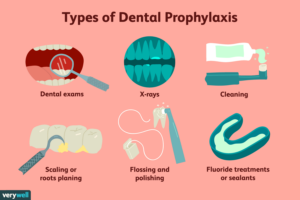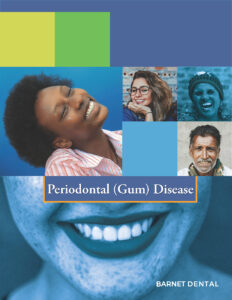What is it?
Dental prophylaxis, commonly referred to as a dental cleaning, is a preventive dental procedure performed by a dental hygienist or dentist to remove plaque, tartar (calculus), and stains from the teeth and gums. It plays a crucial role in maintaining optimal oral health and preventing dental problems such as tooth decay, gum disease, and bad breath. Here’s an overview of dental prophylaxis and its importance:
- Plaque and Tartar Removal:
- Dental prophylaxis involves the thorough removal of plaque and tartar buildup from the tooth surfaces, especially along the gumline and between the teeth. Plaque is a sticky film of bacteria that forms on the teeth throughout the day and can harden into tartar if not removed through regular brushing and flossing. Tartar is a hardened deposit that cannot be removed with regular brushing and requires professional intervention to prevent dental problems.
- Prevention of Tooth Decay and Gum Disease:
- By removing plaque and tartar, dental prophylaxis helps prevent the development of tooth decay (cavities) and gum disease (periodontal disease). Plaque bacteria produce acids that can erode tooth enamel and lead to cavities, while tartar buildup along the gumline can irritate the gums and contribute to gum inflammation and infection. Regular dental cleanings help keep the teeth and gums healthy and reduce the risk of dental problems.
- Detection of Oral Health Issues:
- During a dental cleaning, the dental hygienist or dentist will also perform a thorough examination of the teeth, gums, and oral tissues to detect any signs of dental problems or oral health issues. This may include checking for signs of tooth decay, gum inflammation, oral cancer, or other abnormalities. Early detection and intervention are key to preventing the progression of oral health issues and maintaining overall oral health.
- Fresh Breath:
- Dental prophylaxis can also help improve and maintain fresh breath by removing plaque, tartar, and bacteria that contribute to bad breath (halitosis). Cleaning the teeth and gums thoroughly can eliminate odor-causing bacteria and leave the mouth feeling clean and refreshed.
- Promotion of Overall Health:
- Research has shown that there is a strong link between oral health and overall health, with poor oral hygiene being associated with an increased risk of systemic health problems such as heart disease, diabetes, and respiratory infections. By maintaining good oral hygiene habits and scheduling regular dental cleanings, individuals can help protect their overall health and well-being.
Overall, dental prophylaxis is an essential component of preventive dental care that helps keep the teeth and gums healthy, prevents dental problems, and promotes overall oral and systemic health. It is recommended that individuals undergo dental cleanings at least every six months, or as recommended by their dentist, to maintain optimal oral health and prevent the need for more extensive dental treatment in the future.

